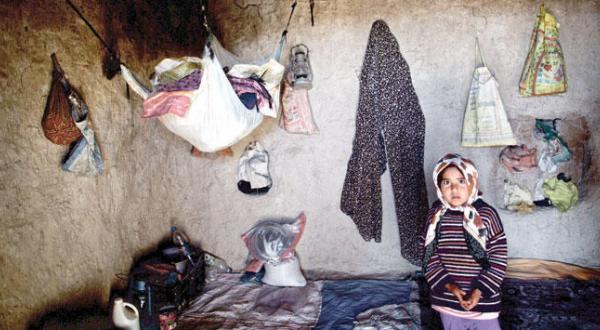Shahindokht Molaverdi, vice president of Iran in the cabinet of Hassan Rouhani’s section of Women and Family Affairs, revealed an Iranian village which had all its men delivered to capital punishment over the past few years. Molaverdi, in her exclusive with Mehr News Agency criticized the elimination of laws from the Iranian penta-program for development that support families of those executed.
Molaverdi, also shammed the confiscation of wealth belonging to those sentenced to death. Her argument defended the families of death roll convicts that are being famished, condemned to poverty and deprivation. Molaverdi mentioned that 17 governmental bodies and institutions work on mitigating social threats, however, do not provide substantial assistance needed for those families losing their breadwinner to the executions.
Baluchistan, a mountainous region on the Iranian plateau in south-western Asia, has a village which lost all its men because of Iranian death roll sentences against them. Molaverdi, however, did not name the village, the time of executions, or even the number of its men that walked the gallows.
Abed al-Sattar Doshoki, chairperson of the Baluchistan Study Center in London, told Asharq Al-Awsat that Baluchistan is considered to be one of the regions ranking top world-wide for death penalties served.
Doshoki said that the village that had lost its men due to the executions is one of the many villages in Baluchistan that had its men taken away, either in military confrontations or prison death sentences. He said that he does not know which one of the many villages Molaverdi is referring to.
Naseerabad southern village of Balochistan, Naseerabad western village of Balochistan, Gornak village in Iranshahr city all have suffered grave losses. Iranshahr especially has witnessed a fierce military confrontation between the Balosh people and Iranian security forces. Doshoki clarified that Gornak has lost many men, some killed and others on the run, after the Iranian Revolutionary Guard Corps (IRGC), accompanied by Iranian army units, acted out a revenge mission against the village.
Doshoki clarified that the retaliation the IRGC launched was after suffering the loss of 30 officers on their behalf, they have executed a mass number of men in the village for allegedly fighting and possessing arms to be used against the IRGC.
Agitation between Baluchistan residents and Iranian security forces is not a recent incident and runs deep. Doshoki mentioned the IRGC previously attacking western Naseerabad in December 2003. The attack took place after Iran accusing the Balosh people of kidnapping foreign tourists. Many village men were killed in the attack, Doshoki added.
Doshoki accused Molaverdi for trying to mask truths around the executions. He referred that her cover-up is because of the involvement of Iranian President Hassan Rouhani in the oppression Balosh people are subjected to, and the retaliation attacks that took place against them. Rouhani’s involvement dates back to the days he chaired the Supreme National Security Council.
When Molaverdi pointed fingers against the Balosh people for trafficking drugs as a response to the executions they suffered, Doshoki refuted her accusation saying that it is not true and that it is probable that the families of those killed have joined armed groups that oppose the Iranian regime. He suggested them joining balosh-resistance factions like “Jaysh al- Adel” (Army of Justice) and “Jaysh al-Nasr” (Army of Victory).
It is regrettable that the Iranian administration connects all suits concerning Baluchistan to drug trafficking and foreign affiliation. If Molaverdi is accusing the Nasserabad villages and Gornak, then they have nothing to do with drugs. The trafficking can be traced back to armed groups known to oppose the regime, Doshoki added.

